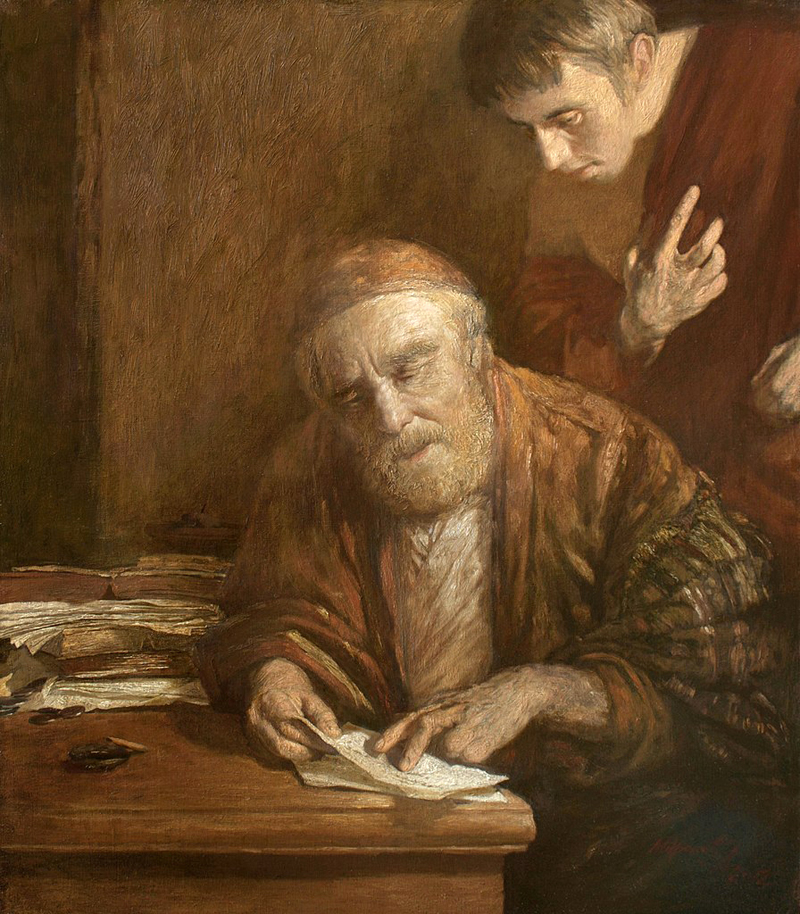ICCH Bulletin of September 21, 2025
September 21, 2025 Twenty-fifth Sunday in Ordinary Time
Welcome Father Daniel Today’s Readings: Amos 8:4-7 | 1 Tm 2:1-8 | Lk 16:1-13

If we take Luke’s vision of the Kingdom of God, as we find it in Mary’s Magnificat and in the Acts of the Apostles [the lifestyle of the first Christian communities (Acts 2:44-45)], and then look at this week’s Gospel I think we will find that Luke is once again showing us that the call of Jesus demands massive, and maybe even very surprising, changes in the way we relate to one another and to our world. […]
This parable, I think, is primarily about relationships; the relationships we have with one another, with possessions, and with wealth.
There is no doubt that the manager is dishonest and was “squandering the rich man’s money.” As a result he was sacked and told to hand over his accounts’ books. […] But this dishonest but ‘shrewd’ manager came up with a novel way of ‘solving’ his problem. […] In a strange and ironic way, the manager uses ‘friendship’ rather than power, or fear, or violence to return, at least some of what the debtors owed the rich man, while also solving his own problem.
The entire situation is riddled with dishonesty, fraud and lies, and Jesus does not condone the manager’s dishonesty or say he should not have been sacked. No, the manager is dishonest and remains dishonest. However, he cleverly (shrewdly) uses his dishonesty to find a ‘good’ result for himself, the debtors and by returning most of what is owed, even the rich man himself.
The Kingdom of God involves forging ‘new’ ways of looking at wealth and possessions; ways which will involve creativity and shrewdness from us. Friendship and fellowship are at the heart of Kingdom of God relationships. Forging these new relationships of friendship will involve letting-go of many preconceived ideas about wealth and how we use it. In the Kingdoms of this world wealth brings power and is used to exploit others, but what if we could use wealth to ‘make friends for ourselves’, creating new relationships where easing a person’s debts benefits everyone. The super-powers of the world could easily write off part or all of the debts owed by small, destitute, starving countries without damaging their own power and wealth in any way. Imagine the difference that would make to our world. And imagine the pride the powerful might feel by simply being generous. Instead, the values of this world say, reduce the help we give to starving and war-torn countries, cut foreign aid, hold on to what we’ve got, and do everything we can to make more trillions of dollars for ourselves.
What Jesus is doing in this parable, and what Luke is calling to our attention, is that the kingdom of God has come into the world, and it is now for us, who call ourselves ‘followers of Jesus’, to build that Kingdom and make it visible.
It is a Kingdom which will scatter the proud-hearted, … cast the mighty from their thrones and raise the lowly, … fill the hungry with good things and send the rich away empty.
It is a living Kingdom where Christian communities …hold all things in common, … who share possessions and belongings with all in need… and who do so with glad and generous hearts…”.
The Kingdom of God turns the values of this world upside-down! Bearing witness to these values involves huge changes in the way we view ‘rich’ and ‘poor’, success, happiness, friendship, welcome.
The parable tells us that we must be shrewd, open to learning from everyone, allowing ourselves to be surprised by what we see around us.
Finally, we don’t have to do everything at once. “Whoever is faithful in a very little is faithful also in much.” We can begin, if we want to, by bringing about the Kingdom of God in our family. It is not a secret how we do it: we practise forgiveness, difficult though it be at times. We try to be gentle in the ways we speak and act with each other, We accept that sometimes family members may have different views or different lifestyles to our own. We are tolerant of difference. We try to be generous with our time, valuing every member of our family. … Witnessing to each of these values is a conscious decision we must make, conscious that they run against the values we see around us.
Easy? Certainly not! … Possible? Yes!
Try it and see!
Source of reflection [shortened]: Fr. Brian, Missionary Oblates of Mary Immaculate, https://oblates.ie/pray-with-us/weekly-reflections/ Source of image: Mironov, Andreĭ (Andreĭ Nikolaevich), 1975-. Parable of the Unjust Steward, from Art in the Christian Tradition, a project of the Vanderbilt Divinity Library, Nashville, TN. https://diglib.library.vanderbilt.edu/act-imagelink.pl?RC=57060 [retrieved September 20, 2025]. Original source: https://commons.wikimedia.org/wiki/File:
